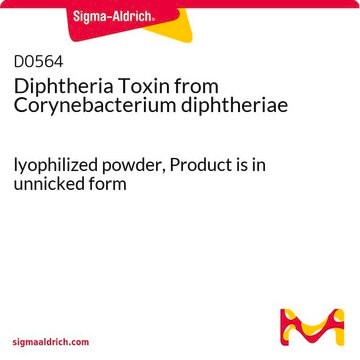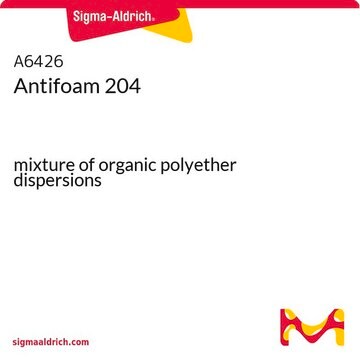D1377
2,6-Diaminopimelic acid
≥98% (TLC), suitable for thin layer chromatography (TLC)
Synonym(s):
2,6-Diaminoheptanedioic acid
About This Item
Recommended Products
product name
2,6-Diaminopimelic acid, ≥98% (TLC)
Quality Level
Assay
≥98% (TLC)
form
powder
technique(s)
thin layer chromatography (TLC): suitable
color
white to off-white
mp
~295 °C (dec.) (lit.)
application(s)
peptide synthesis
SMILES string
NC(CCCC(N)C(O)=O)C(O)=O
InChI
1S/C7H14N2O4/c8-4(6(10)11)2-1-3-5(9)7(12)13/h4-5H,1-3,8-9H2,(H,10,11)(H,12,13)
InChI key
GMKMEZVLHJARHF-UHFFFAOYSA-N
Looking for similar products? Visit Product Comparison Guide
General description
Application
- as a supplement in glucose minimal media for screening Bacillus subtilis(44)
- as a component of lysogeny broth (LB) agar for screening E coli transformants(45)
- as a standard in thin layer chromatography for the characterization of DAP isoforms from Streptomyces strains(46)
Biochem/physiol Actions
Other Notes
Signal Word
Warning
Hazard Statements
Precautionary Statements
Hazard Classifications
Eye Irrit. 2 - Skin Irrit. 2 - STOT SE 3
Target Organs
Respiratory system
Storage Class Code
11 - Combustible Solids
WGK
WGK 3
Flash Point(F)
Not applicable
Flash Point(C)
Not applicable
Personal Protective Equipment
Certificates of Analysis (COA)
Search for Certificates of Analysis (COA) by entering the products Lot/Batch Number. Lot and Batch Numbers can be found on a product’s label following the words ‘Lot’ or ‘Batch’.
Already Own This Product?
Find documentation for the products that you have recently purchased in the Document Library.
Customers Also Viewed
Our team of scientists has experience in all areas of research including Life Science, Material Science, Chemical Synthesis, Chromatography, Analytical and many others.
Contact Technical Service














